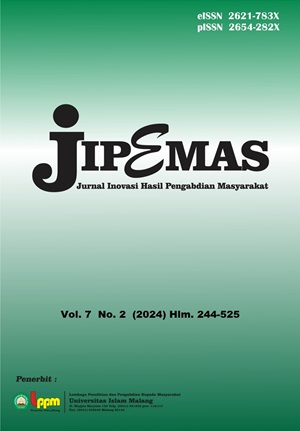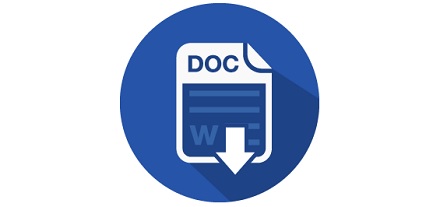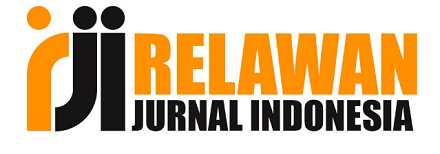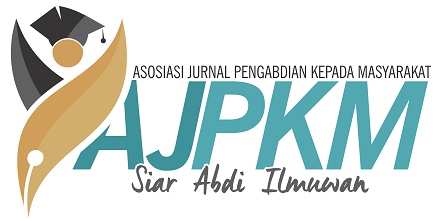Operasi pasar murah sebagai alternatif mengatasi penurunan kemampuan ekonomi masyarakat
DOI:
https://doi.org/10.33474/jipemas.v7i2.20726Keywords:
kemampun membayar, operasi pasar murah, subsidiAbstract
Pasar Murah merupakan salah satu program stabilisasi harga pangan yang baru dibentuk pemerintah pada tahun 2017. Dampak COVID-19 secara spesifik menyebabkan tingkat kemiskinan di wilayah Kota Cimahi pada tahun 2020 mencapai 5,11 % atau naik sebesar 0,72% dibandingkan pada tahun sebelumnya 2019. Metode yang dinuakan adalahPAR (Participatory Action Research) yang terdiri dari persiapan, pengambilan data, dan analisis penyelenggaraan operasi pasar murah. Jumlah keluarga miskin di Kota Cimahi Tahun 2019 mencapai 25.556 Kepala Keluarga (KK) yang tersebat di 3 Kecamatan yaitu Cimahi Selatan merupakan wilayah dengan keluarga miskin terbanyak mencapai 11.111 KK, Cimahi Utara mencapai 7.767 KK dan Cimahi Tengah mencapai 6.779 KK. Berdasarkan tingkat keparahan kemiskinan, jumlah keluarga sangat miskin (desil 1) di Kecamatan Cimahi Selatan mencapai 5.075 KK, Cimahi tengah 2.678 KK dan Cimahi Utara mencapai 4.046 KK. Komoditas yang disubsidi di pasar murah Kota Cimahi meliputi beras, minyak goreng, gula pasir, daging ayam, dan telur ayam. Fluktuasi harga menjelang Ramadhan, Lebaran, dan tahun baru menyebabkan permintaan melonjak, sehingga subsidi diperlukan agar harga tetap stabil dan tersedia bagi penduduk miskin di Kota Cimahi. Adapun luaran yang dihasilkan dengan pelaksanaan kegiatan ini adalah tersusunnya konsep Peraturan Wali Kota Cimahi tentang Subsidi Sembilan Bahan Pokok Bagi Masyarakat Rawan Sosial.
References
Agustino, L., Sylviana, M., & Budiati, A. (2021). Government Capacity in Coping with Covid-19 in Bandung City. Jurnal Borneo Administrator, 17(3), 275–290. https://doi.org/10.24258/jba.v17i3.847
Alfath, T. P., Djatmiati, T. S., Bagus, Moh., & Ardhiyoko, A. (2022). The Government Responsibilities in Handling the Covid-19 Pandemic and Improving The Declining Economy in Indonesia. IJEBD (International Journal of Entrepreneurship and Business Development), 5(2), 285–295. https://doi.org/10.29138/ijebd.v5i2.1754
Barbier, E. B., & Burgess, J. C. (2020). Sustainability and development after COVID-19. World Development, 135, 105082. https://doi.org/10.1016/j.worlddev.2020.105082
CB Bhattacharya, H. J. (2020). How the COVID-19 reset can help firms build a better world | World Economic Forum. World Economic Forum. https://www.weforum.org/agenda/2020/05/the-covid-19-reset-sustainability/
Elkington, J. (2004). Enter the Triple Bottom Line. Earthscan.
Hakim, M. Z., Rismayanti, A., & Moenta, P. (2023). Discretion by The Indonesian Government in The Covid-19 Pandemic Era. Russian Law Journal, 11(3). https://doi.org/10.52783/rlj.v11i3.996
Hakovirta, M., & Denuwara, N. (2020). How COVID-19 redefines the concept of sustainability. Sustainability (Switzerland), 12(9), 10–13. https://doi.org/10.3390/su12093727
Hartono, A., Ishak, A., Abdurrahman, A., Astuti, B., Marsasi, E. G., Ridanasti, E., Roostika, R., & Muhammad, S. (2021). COVID-19 Pandemic and Adaptive Shopping Patterns: An Insight from Indonesian Consumers. Global Business Review, 097215092110135. https://doi.org/10.1177/09721509211013512
Higashi, R. T., Sood, A., Conrado, A. B., Shahan, K. L., Leonard, T., & Pruitt, S. L. (2022). Experiences of increased food insecurity, economic and psychological distress during the COVID-19 pandemic among Supplemental Nutrition Assistance Program-enrolled food pantry clients. Public Health Nutrition, 25(4), 1027–1037. https://doi.org/10.1017/S1368980021004717
Li, N., Chen, M., Gao, H., Huang, D., & Yang, X. (2023). Impact of lockdown and government subsidies on rural households at early COVID-19 pandemic in China. China Agricultural Economic Review, 15(1), 109–133. https://doi.org/10.1108/CAER-12-2021-0239
Proborini, A., Ekowati, T., & Sumarjono, D. (2018). Analisis Efektivitas Pelaksanaan Pasar Murah Bulog Dalam Menjaga Stabilitas Harga Beras di DKI Jakarta. BISE: Jurnal Pendidikan Bisnis Dan Ekonomi, 4(1), 38–49. https://doi.org/10.20961/bise.v4i1.21298
Purnomo, A. R. E., Suharto, D. G., & Wahyunengseh, R. D. (2020). The Role of Discretion in Handling COVID-19. Musamus Journal of Public Administration, 3(1), 40–54. https://doi.org/10.35724/mjpa.v3i1.3136
Rafael, R. D. M. R., Neto, M., Carvalho, M. M. B. de, David, H. M. S. L., Acioli, S., & Faria, M. G. de A. (2020). Epidemiologia, políticas públicas e pandemia de Covid-19: o que esperar no Brasil? [Epidemiology, public policies and Covid-19 pandemics in Brazil: what can we expect?] [Epidemiologia, políticas públicas y la pandémia de Covid-19 en Brasil: que podemos esperar?]. Revista Enfermagem UERJ, 28, e49570. https://doi.org/10.12957/reuerj.2020.49570
Stylianou, V. (2021). A policy response to COVID-19: An Australian perspective. Journal of the International Council for Small Business, 2(3), 159–166. https://doi.org/10.1080/26437015.2020.1852060
Tjiptono, F., Khan, G., Ewe, S. Y., & Dharmesti, M. (2022). Consumer Behavior During and Post-COVID-19 in Indonesia and Malaysia. In COVID-19 and the Evolving Business Environment in Asia (pp. 205–233). Springer Nature Singapore. https://doi.org/10.1007/978-981-19-2749-2_11
World Bank. (2020). Global Economic Prospects June 2020 (Issue June). https://doi.org/10.2307/j.ctt183pb3w.5
Yuda, T. K., & Qomariyah, N. (2022). Ideas and Policy Response to the COVID-19 Crisis: Evidence from Jakarta, Indonesia. Social Policy and Society, 1–20. https://doi.org/10.1017/S1474746422000616
Downloads
Published
How to Cite
Issue
Section
License
Copyright (c) 2024 Dikdik Kusdiana, Mochammad Ridwan, Sasa Saefulrohman Suratman

This work is licensed under a Creative Commons Attribution-ShareAlike 4.0 International License.
.










